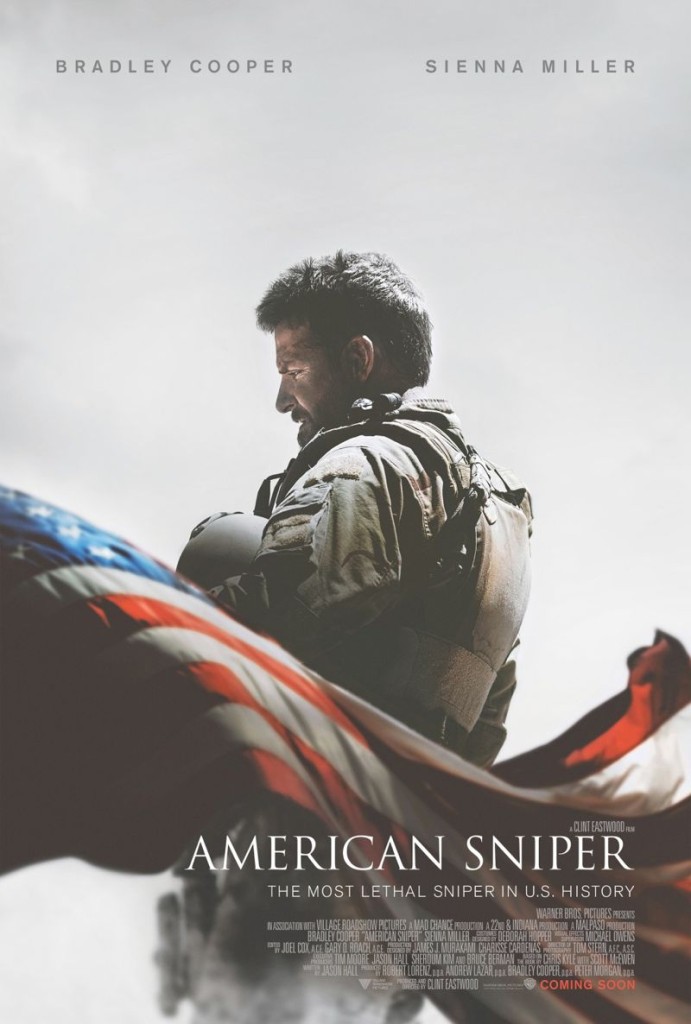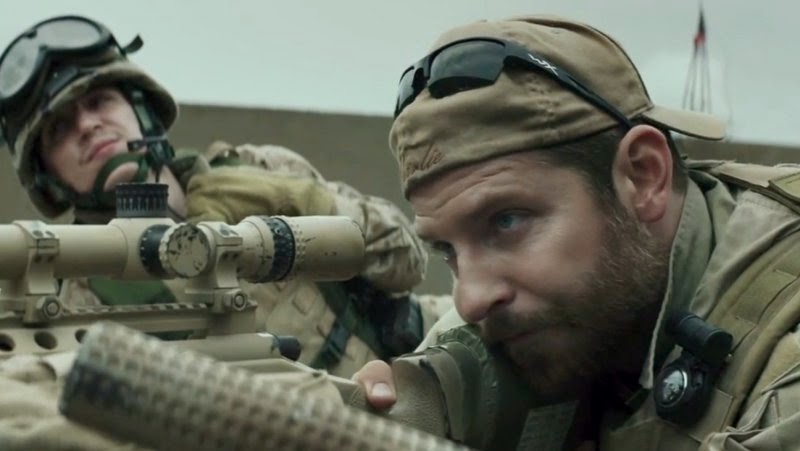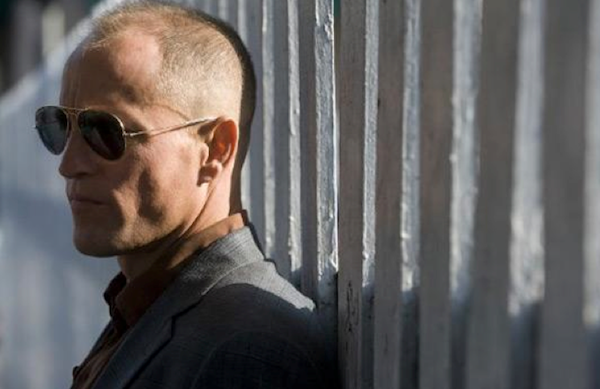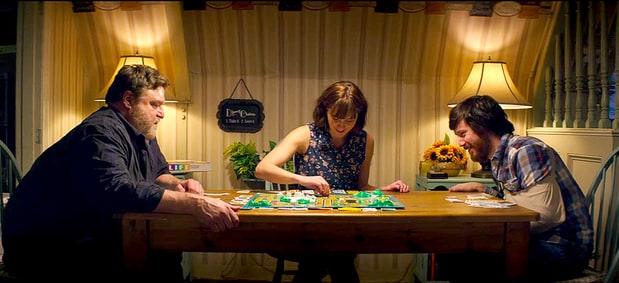In many (some completely obvious ways) Clint Eastwood and sniper Chris Kyle are kindred spirits. They have both fancied massive “lone gunmen cowboy” personas – two men who play by their own rules. In a world of good and evil, Eastwood and Kyle dish out their unique form of vigilante “Dirty Harry-esque” justice. In American Sniper Eastwood has an opportunity to tell Kyle’s story (adapted from his memoir of the same name,) contradictions and all. What comes of it is a worthy tribute to Kyle’s hefty legacy that is also maddeningly white-washed and simple.
The problem to me lies almost uniquely in the screenplay – adapted for the screen by Jason Hall. Hall seems almost dutifully glued to Kyle’s entire life story, giving us beats from childhood all the way to the end of his life. It’s the classic biopic problem – with 2-hours to tell a story, do we need the ENTIRE story? To me this zaps nearly all of American Sniper’s subtext, leaving us with scene after scene of on-the-nose, cornball dialogue that feels lifted from nearly every modern war film since the early Bush-era.
 Thank goodness for the existence of Bradley Cooper. His performance as Chris Kyle deserves a better movie than this. All the subtext – the toll that the Iraq war took on the military members who fought in it – that’s missing from the script is all over Cooper’s face. His presence and sincerity gives us the understanding that Kyle truly believes in what he is doing as a Navy SEAL even at the expense of his family. Cooper carries that weight on his giant, beefed up shoulders in every scene even as the situation in the Middle East grows direr with every tour. He seems at home in the dirt and rubble there, when he’s actually at home that vibrancy turns in to little more than a grunt or an apology. It’s career defining for Cooper and a testament to how far he’s come as an actor.
Thank goodness for the existence of Bradley Cooper. His performance as Chris Kyle deserves a better movie than this. All the subtext – the toll that the Iraq war took on the military members who fought in it – that’s missing from the script is all over Cooper’s face. His presence and sincerity gives us the understanding that Kyle truly believes in what he is doing as a Navy SEAL even at the expense of his family. Cooper carries that weight on his giant, beefed up shoulders in every scene even as the situation in the Middle East grows direr with every tour. He seems at home in the dirt and rubble there, when he’s actually at home that vibrancy turns in to little more than a grunt or an apology. It’s career defining for Cooper and a testament to how far he’s come as an actor.
The fact that you never doubt Kyle’s sincerity is something very few Director’s other than Eastwood can pull off. Despite the scripts problems Eastwood’s direction is sure-handed and clear. He establishes early that Kyle has an adversary in the dastardly Mustafa – a Syrian sniper working in Iraq on behalf of the Taliban. This is classic Western-era Eastwood. He excels in the tense stand-offs between equally driven adversaries. Its two men, weapons drawn at opposite ends of a dusty road. It’s the picture that Eastwood has captured so many times and he finds some of that magic again in the tensest moments in Iraq.
Eastwood is perhaps at his best when Kyle returns home. Although the writing problems persist he allows scenes between Kyle and his wife Taya (Sienna Miller) to linger, sometimes uncomfortably long as we feel the pull of Kyle’s duty putting a stranglehold on their marriage. Without Eastwood’s patience these scenes could ring so false that American Sniper could have ended up looking like War Horse.
What’s come out in the years since Kyle’s death is that he was perhaps a far more complicated person than this film purports him to be. He may have been swept up in his own mythology – the most decorated sniper in U.S. military history probably comes with a lot more baggage that we think. Eastwood chooses to ignore the potentially gray (or untrue) areas of Kyle’s memoir and tries to focus solely on the man. It’s a murky decision that nearly turns the film version of Kyle into a robot of legendary conviction.
American Sniper works better for me as a testament to the veterans of the Iraq-war immediately after 9/11. It is a murky war filled with ambiguous intentions and maybe the country needs a story like Chris Kyle’s to attempt to make any sense of it. People may read the film as jingoistic or too rah-rah America but I think Eastwood is reaching deeper than that. At least Kyle’s ambitions were clear and with an actor like Bradley Cooper so earnestly invested perhaps we can get a little bit closer to the man Kyle was not the legend so many wanted him to be.





